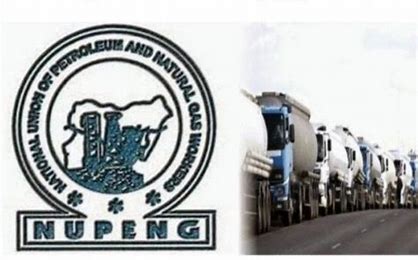News
Account For FAAC Allocations Or Face Lawsuit, SERAP Tells Govs, FCT Minister

The Socio-Economic Rights and Accountability Project has urged Nigeria’s 36 state governors and the Minister of the Federal Capital Territory, Nyesom Wike, to account for the spending of Federal Account Allocation Committee allocations to states and the FCT since 2019.
It also asked them to provide and widely publish documents on the spending of FAAC allocations received by their states and the FCT since 1999.
The Federal Account Allocation Committee is responsible for reviewing and adopting the allocation of funds to states and the Federal Government of Nigeria.
The requests followed reports that the committee disbursed N1.123 trillion to the federal, state, and local governments for March 2024 alone.
The breakdown showed states collected N398.689 billion.
SERAP’s request was contained in the Freedom of Information inquiry dated April 20, 2024, and signed by its Deputy Director, Kolawole Oluwadare.
“Without this information, Nigerians cannot follow the actions of their states and the FCT, and they cannot properly fulfil their responsibilities as citizens.
“Trillions of FAAC allocations received by Nigeria’s 36 states and the FCT have allegedly gone down the drain. The resulting human costs directly threaten the human rights of socially and economically vulnerable Nigerians,” it said.
It added that publishing the documents would enable Nigerians to meaningfully engage in the implementation of projects executed with the FAAC allocations collected.
“We would be grateful if the recommended measures are taken within seven days of the receipt and/or publication of this letter.
“If we have not heard from you by then, SERAP shall consider appropriate legal actions to compel you and your state and the FCT to comply with our requests in the public interest,” it added.
The FoI requests read in part, “Secrecy in the spending of FAAC allocations received by your state and the FCT is entirely inconsistent and incompatible with the Nigerian Constitution 1999 [as amended] and the country’s international anti-corruption obligations.
“Secrecy in the spending of FAAC allocations received by your state and the FCT also denies Nigerians the right to know how public funds are spent. Transparency in the spending would allow them to retain control over their government.
“The documents should include the evidence and list of specific projects completed with the FAAC allocations collected, the locations of any such projects, and completion reports of the projects.
“The documents should also include details of the salaries and pensions paid from the FAAC allocations collected, as well as the details of projects executed on hospitals and schools with the FAAC allocations.
“Despite the increased FAAC allocations to states and FCT, millions of residents in your state and the FCT continue to face extreme poverty and lack access to basic public goods and services.”
News
Transporter Frowns At PTD Strike, Says Union Will Force Govt To Use Rail As Mobility Alternative In Lifting Petroleum Products

By Kayode Sanni-Arewa
A prominent transporter in Oyo State and convener of a pressure group, “Know Your Right”, Kehinde Adebeshin a.k.a “Baba Ibeji” has cautioned the Nigeria Union of Petroleum and Natural Gas Workers (NUPENG) and its Branch, the Petroleum Tanker Drivers (PTD) not to force the government of Nigeria to see the Nigerian Railway Corporation (NRC) as a preferred mobility alternative across the country for lifting Petroleum products.
This surprise call came in the wake of industrial action by the PTD in Lagos State to protest the “persistent harassment” of tanker and petroleum product drivers by police officers attached to the Task Force and LASTMA officials in Lagos State.
Although the strike has been called off by the Union’s leadership on Wednesday, February 25, 2025; however Adebeshin decried the ripple effects of the hardship the action of PTD had caused Nigerians since Saturday, February 22, 2024, he described the Union’s decision as an act of economic sabotage. He maintained that it was unfortunate and regrettable that the union flagrantly failed to comply with the existing Lagos e-call-up enforcement which was aimed at regulating truck activities and for maintaining orderliness in the already congested metropolis.
Adebeshin blamed PTD and its parent body, NUPENG’s overzealousness and highhandedness on leadership gap, incompetence, lack of tact and administrative indiscretion. He also expressed disappointment on the implications of the strike on Telecom operators who also raised an alarm over an impending service disruption within Lagos and Ogun states, as diesel supply to their service locations were blocked for three consecutive days when the strike was on.
Adebeshin’s statement on Tuesday reads in parts:
“For lack of tact, competence, administrative discretion, and leadership gaps in operations, the Nigeria Union of Petroleum and Natural Gas Workers (NUPENG) and its Branch, the Petroleum Tanker Drivers (PTD) have openly given opportunity for the government of Nigeria to see the Nigerian Railway Corporation (NRC) as a preferred mobility alternative across the country for lifting Petroleum products and put a total stop to transportation of products through the road.
“The Union must be able to properly measure situations critically before down tooling, unfortunately, NUPENG and PTD have created room for business owners and Nigerians as a whole to label them economic saboteurs who stand the risk of being invited by the DSS. The Union brazenly failed to do its background check whether trucks arrested by Lagos State Task Force and LASTMA officials have not flaunted the existing Lagos e-call-up regulations which was designed to regulate truck activities and for maintaining orderliness in the already congested metropolis. Standing as an encumbrance to the government’s well intentioned program and policy is an affront which should never be tolerated.
“The circular by the Lagos State government to all stakeholders to streamline and regulate truck activities along Lekki-Epe axis of the state, effective March 1, 2025 did not exempt NUPENG or PTD, therefore all violators would be apprehended and made to face the full wrath of the law.
“NUPENG should note that the Nigerian Railway Corporation (NRC), has already collaborated with APM Terminals (APMT) to kick start container traffic service on the standard gauge railway, connecting Lagos to the Moniya Freight Yard in Ibadan. This milestone can be replicated in the downstream sector of the Petroleum industry to enhance Petroleum products lifting and distribution activities, and providing a more efficient and convenient mode of transportation and ultimately help to reduce or put into a total halt, petrol tanker accidents which have claimed many lives and destroyed properties.
“It is good news to hear that NUPENG had eventually swallowed its pride by calling off the 3-day strike, they should engage more in peaceful dialogue with the government of Lagos State in the larger interest of Nigeria so as to foster symbiotic industrial harmony and prosperity. The Union should also try to fix the PTD leadership crisis in the nick of time and give room for people with vision, experience and positive direction to take charge of the PTD Branch and restore its old glory and dignity,” he said.
News
Sad! Midnight f!re engulfs Ladipo, Owode Onirin markets in Lagos

By Kayode Sanni-Arewa
A midnight inferno gutted Ladipo Market in Mushin and Owode Onirin Market along Ikorodu Road, Lagos, destroying goods worth millions of naira.
According to eyewitnesses, the fire broke out at Ladipo Market around 1 a.m., ravaging several shops and warehouses filled with mechanical tools, vehicle spare parts, motorcycles, and household electrical appliances.
Fortunately, no casualties were recorded in either incident, as confirmed by the Lagos State Fire and Rescue Service, which successfully curtailed the fire by 6 a.m.
Director of the Lagos State Fire and Rescue Service, Margaret Adeseye, confirmed that emergency teams from Isolo, Bolade, and Alausa Fire Stations battled the flames at Ladipo Market. Despite challenges in accessing the affected areas, firefighters managed to contain the fire, preventing it from spreading to adjoining properties and businesses.
Meanwhile, another fire erupted at Owode Onirin Market along Ikorodu Road, affecting several shops dealing in metallic materials. Firefighters from the Alausa and Ikorodu Fire Stations responded swiftly, bringing the situation under control by 5 a.m.
Adeseye reassured the public that investigations would determine the cause of both fires once firefighting operations reach the damping-down stage.
“Thankfully, no casualties were recorded in either incident. The causes of the fires will be ascertained as soon as firefighting operations progress to the next stage,” she stated.
News
US dumps UK, others from visa-free entry for 2025

By Kayode Sanni-Arewa
The United States, on Monday, released the list of eligible countries for its 2025 Visa Waiver Programme.
The United Kingdom was excluded from the programme but remains eligible under specific conditions.
The list also does not include any African countries, such as Nigeria, Ghana, or South Africa.
While most of the VWP list remains unchanged, the addition of Romania marks a significant update. The US has also focused on enhancing security checks and prioritising countries with strong diplomatic ties and border security standards.
According to the US Bureau of Consular Affairs website, the Visa Waiver Programme allows most citizens or nationals of participating countries to travel to the United States for tourism or business for up to 90 days without obtaining a visa.
The agency stated, “Travellers must have a valid Electronic System for Travel Authorization (ESTA) approval prior to travel and meet all requirements explained below. If you prefer to have a visa in your passport, you may still apply for a visitor visa.”
The new Visa Waiver Programme for 2025 introduces policy updates on permit eligibility and revisions to the list of participating countries, as well as new travel policies.
This update simplifies visa-free entry into the United States for millions worldwide, making business, tourism, and transit travel more accessible.
The 2025 Visa Waiver Programme includes 40 countries whose citizens can now travel to the United States without a visa.
See the full list below:
1. Andorra,
2. Australia,
3. Austria,
4. Belgium,
5. Chile,
6. Czech Republic,
7. Croatia,
8. Denmark,
9. Estonia,
10. Finland,
11. France,
12. Germany,
13. Greece,
14. Hungary,
15. Iceland,
Nigeria needs data centres to meet digital demand – Geniserve
16. Ireland,
17. Italy,
18. Israel
19. Norway,
20. Poland,
21. Portugal,
22. San Marino,
23. Singapore,
24. Slovakia,
25. Japan,
26. Slovenia,
27. Latvia,
28. South Korea,
29. Liechtenstein,
30. Spain,
31. Lithuania,
32. Sweden,
33. Luxembourg,
34. Switzerland,
35. Malta,
36. Netherlands,
37. New Zealand,
38. Qatar,
39. Romania
40. Monaco
-

 Metro12 hours ago
Metro12 hours agoGunmen attack Edo farming communities kill dozens, destroy properties
-

 Metro12 hours ago
Metro12 hours agoMan takes girlfriend’s life while beating her
-

 News7 hours ago
News7 hours agoSEE Black Market Dollar To Naira Exchange Rate Today 26th February 2025
-

 News20 hours ago
News20 hours agoIt’s Awful For Akpabio To Humiliate Female Senators, Kingibe, Natasha;– Ex-Minister Ezekwesili
-

 News24 hours ago
News24 hours agoAiyedatiwa sworn in as Ondo State Governor
-

 News7 hours ago
News7 hours agoJust in: David Setonji May Become New LSHA Speaker Meranda To Step Down
-

 News11 hours ago
News11 hours agoIBB in his controversial book narrates how he met his wife, Maryam
-

 News7 hours ago
News7 hours ago2027: APC hammers El-Rufai over att@ck on Tinubu, Ribadu







